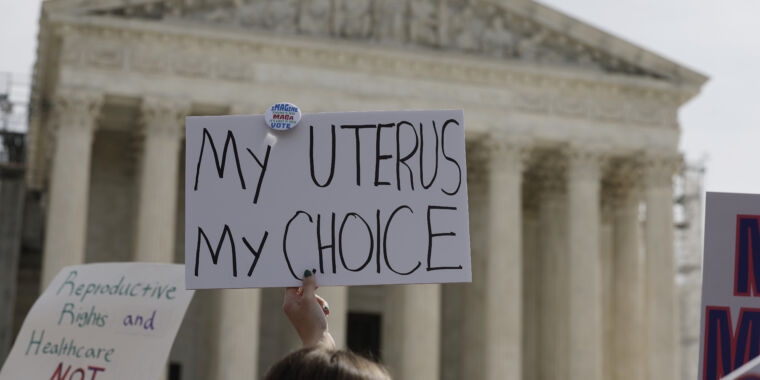US Supreme Court Hears Arguments on Abortion and Miscarriage Drug Case
The US Supreme Court convened on Tuesday to consider arguments in a case aimed at restricting access to the abortion and miscarriage drug mifepristone. A majority of justices appeared dubious of the legal standing of the anti-abortion groups that initiated the case.
Implications of the Case
The lawsuit places in jeopardy the accessibility of a drug that has been utilized safely for many years. According to the Guttmacher Institute, mifepristone was employed in 63 percent of documented abortions within the healthcare system in 2023. Moreover, the case carries far-reaching ramifications concerning the Food and Drug Administration’s jurisdiction over pharmaceuticals. This is the first instance in which the courts have contested the agency’s expert scientific analysis, seeking to curtail access to an FDA-approved medication.
Concerns from Various Sectors
Health professionals, reproductive health advocates, the FDA, and the pharmaceutical industry have all been stirred by the implications of this case. The court’s questioning during the oral arguments, however, provided some relief to these concerned parties.
Legal Standing of the Case
Brought forward in 2022 by an amalgamation of anti-abortion organizations spearheaded by the Alliance for Hippocratic Medicine, the case challenges the legality of the FDA’s 2000 approval of mifepristone. The subsequent FDA measures in 2016 and 2021, which facilitated telemedicine prescription and mail distribution of the drug, were also disputed. The anti-abortion groups argued that their affiliated doctors are adversely affected by the FDA’s actions due to the requirement of treating patients facing complications post-mifepristone use.
Despite assertions from the FDA and various medical bodies on the sound safety profile of mifepristone, the lawsuit alleged rare complications. Severe side effects manifest in less than 1 percent of patients, with major adverse events occurring in less than 0.3 percent. Fatal outcomes are incredibly rare, as per the American College of Obstetricians and Gynecologists.
A federal judge in Texas aligned with the anti-abortion groups last year, an action that was partially overturned by a conservative panel of judges at the Court of Appeals for the 5th Circuit in New Orleans. This subsequent ruling stalled the Supreme Court’s involvement in the matter.
Examination by Supreme Court Justices
During the recent hearings, Solicitor General Elizabeth Prelogar contended that the plaintiff doctors had not faced any harm. She posited that if they had, established federal protections already afforded them recourse. Notably, doctors holding conscientious objections to caring for post-abortion patients are shielded by federal provisions, thereby preventing them from being mandated to provide such care. Hospitals have enacted protocols and staffing arrangements to comply with these doctors’ conscientious objection rights.
Image/Photo credit: source url





